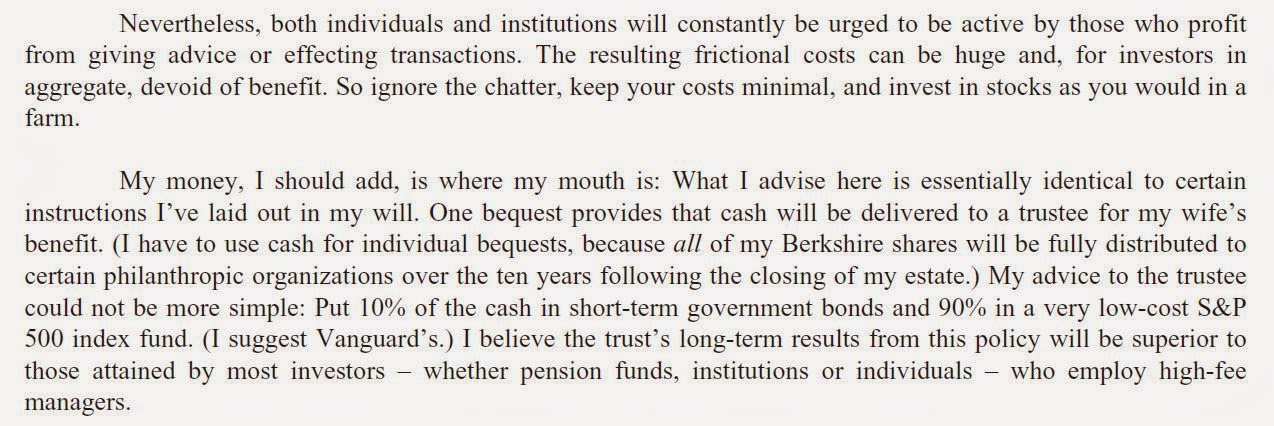So with all of this talk of a market correction coming and people wondering what to do in this toppy market, Pzena put out an interesting newsletter back in June. It looks at value stocks and how they performed in market corrections in the past.
They define value stocks as the lowest quintile of stocks based on price-to-book. We can argue all day what a value stock is, but since many value studies seem to show similar results whether you use p/b, p/e or whatever, let's just say p/b is a decent proxy for value.
Another question is whether there is survivorship bias in the data. Companies that go bust often get kicked out of a database so when you go back and do a p/b ratio study, it excludes all the cheap stocks that went to zero (and therefore improves the performance of the low p/b group). I think Greenblatt, in his studies, used a Compustat database that showed actual data that was available at the time (so eliminates this bias), and since Greenblatt and Pzena both spent time together researching these things, I assume that he is using a similar database for this study.
Anyway, read the whole thing here:
Pzena Second Quarter Newsletter
Here's an excerpt:
Recessions alone or corrections driven by excessive valuations absent a financial crisis appear to favor value stocks, which outperformed in nine out of ten of these periods by an average of 6.8%. One of the most dramatic of these periods was the bursting of the internet bubble which started in March, 2000. During the subsequent thirty-five months, value stocks went on to outperform the S&P 500 index by 14.1%, as the massive overvaluation of “new economy” stocks unwound. Although the magnitude of value’s outperformance was smaller during the stock market crash of 1987, this sudden adjustment in valuations saw value stocks outperform by 7.9%. Four other periods associated with economic recessions but no financial crises also saw value stocks outperform.
Of the five periods of underperformance, four were associated with financial crises. This included the Global Financial Crisis of 2008/09, European “echo” crisis of 2011, the Asian currency crisis of 1998, and the U.S. Savings & Loan crisis of 1990/91. Although the 1968-70 correction, where value stocks underperformed, included the Penn Central bankruptcy (the largest such event in U.S. history to that date), we have not included it in the financial crisis category.
The history of value in periods following market corrections is one predominantly of outperformance, in many cases by a significant margin. During our study period, value outperformed in thirteen of fourteen periods post-correction (Figure 1), leading to value stocks adding almost 2.5% per annum of excess return over the S&P 500 for the entire fifty-four year period.
Figure 1: Value Stocks In Market Corrections

Source: Sanford C. Bernstein & Co., Pzena Analysis
Pzena points out that we can't really know what is going to drive the next bear market (recession, financial crisis or just valuation correction without either).
But if you don't think a financial crisis in the near term is likely, then value stocks is the place to be.
Buffett has said that he thinks it is highly unlikely that the next crisis will come from the banks. I tend to agree with that as there is some institutional memory and people tend not to make the same mistakes twice in a row. Of course, there will be crises in banking/finance. But I don't think the next one will be anything like the last one.
More Fear Now?
I don't really follow sentiment figures or anything like that, but it does feel like there is a lot more fear in the market than earlier this year. A lot of that is due to the situation in Iraq, Israel, and of course Ukraine. I think there have been more calls of a market crash or severe market correction.
So people seem to have a different vibe when asking about what to do in the stock market. I still point people to Buffett's annual letter and the market hasn't moved all that much since he wrote it earlier this year.
This is what he wrote:
It's interesting to ponder what Buffett might have written if the S&P 500 index was trading at a p/e ratio of 150x, but he suggests a 90% S&P 500 index fund and 10% cash (to pay expenses/bills etc).
Buffett says the S&P 500 index is fine now, regardless of all the things the pundits worry about. But let's take a look at some of the things that people worry about.
Profit Margins Unsustainable
I've sort of looked at this in the past in various posts. This is an interesting topic. There is an argument that some of the higher profit margins is due to increasing globalization of U.S. corporations (especially when looking at profit to GDP), that some of it is due to more value-added businesses in the stock market now compared to in the past (more Googles and Apples rather than Bethlehem Steels; low margin businesses moving out of the U.S. to low labor cost countries etc...). Pzena made a case that return on capital was consistent and that is what matters.
All of these arguments are interesting.
But for me, I just look at what I own and see if they have unsustainably high profit margins. And for most of the businesses that I talk about here on this blog, that is not the case. For a lot of the larger big caps, I don't see anything like that either; margins seem stable over time. Look at BRK's businesses, for example. Which businesses are over-earning? Housing? Nope. Insurance? Nope. Retail? Nope.
Unsustainably Low Interest Rates
This too is a concern as it impacts the stock market in various ways. It affects the discount rate, of course, and also the cost of capital for corporations with debt. It can also affect final demand (sales) as low debt encourages consumption/investment.
As for the discount rate aspect of it, I don't worry too much about it as earnings yields stopped going down long before interest rates kept declining. If the market kept going up with the decline in interest rates, the stock market would be trading at 40x p/e (using the Greenspan model of earnings yield = 10 year treasury rate). The S&P 500 didn't go up to 70x p/e when interest rates went down to 1.5%. This is why the market hasn't collapsed as interest rates came back up to 2.5%.
And this is why I don't believe the market has to collapse if interest rates goes back up to 5.0%.
As for financing costs, higher interest rates would reduce earnings of companies with a lot of debt for sure. But many firms actually have a lot of cash and would benefit from higher interest rates. Banks and insurance companies come to mind (and we like financials).
Companies with a lot of debt also anticipate higher interest rates in the future so are locking in rates at current low levels, and future capital allocation decisions can be made with higher interest rates built into the model. If anyone is expecting low rates forever, we should just stay away from that business!
Market Crash is Coming!
And of course, one major argument is that the market is just overvalued, plain and simple. For that too, I just take a look at my holdings and see what might be overvalued. If I don't see anything overvalued, I don't worry.
As Pzena has shown above, when the market is overvalued and there is a valuation correction, the overvalued stocks tend to get hit and value stocks tend to do way better. This is a major reason why I am usually not worried too much about crashes/corrections.
Conclusion
Anyway, nothing new here, but I just thought the Pzena study was interesting. And I thought I'd recap my thoughts about the market and why I am so at peace despite people calling for a market crash.
Of course, I am not saying that the market won't crash or go into a bear market. I just have no idea about that. I do have no doubt that something like that will happen at some point. But I don't worry too much about it (for the above reasons).
Copyright © The Brooklyn Investor













